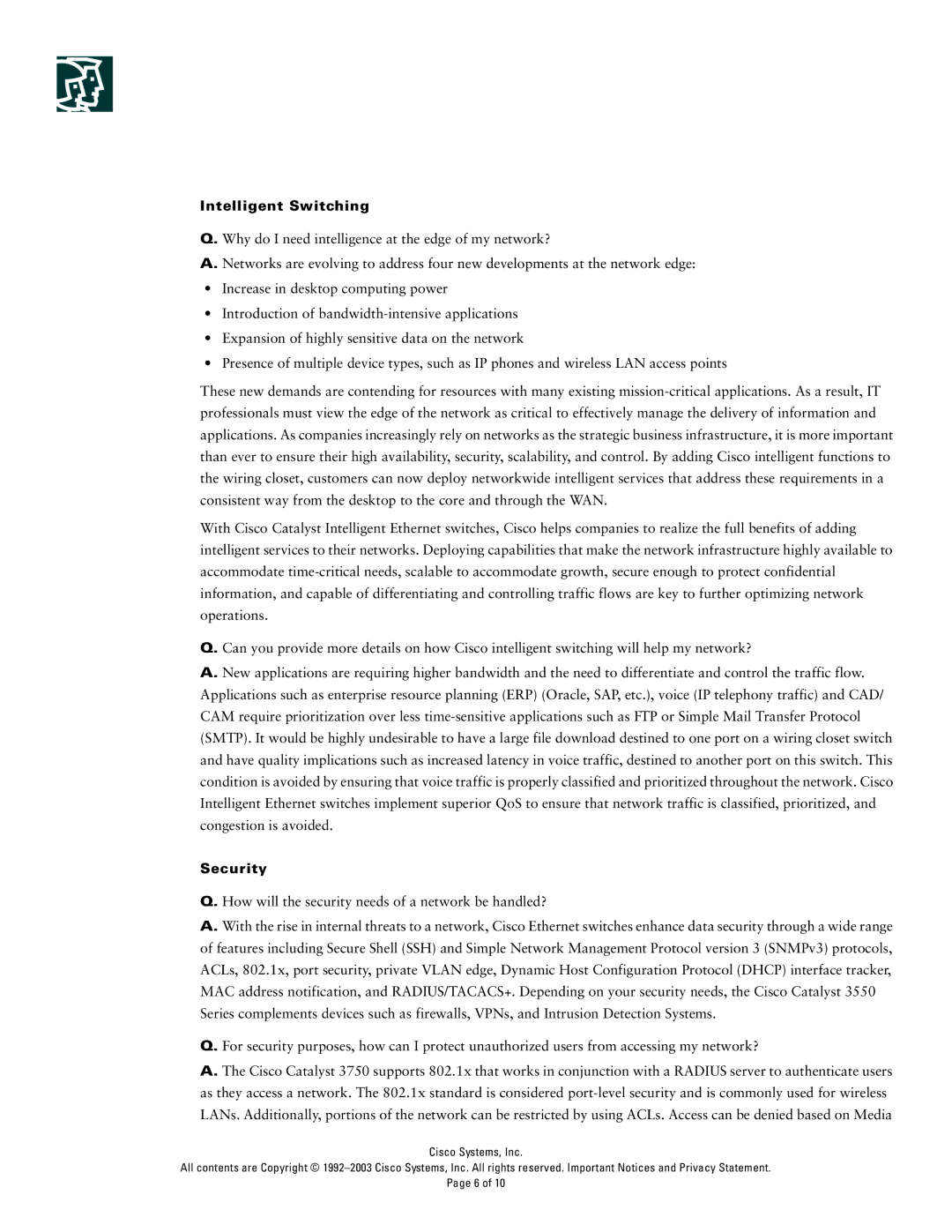Intelligent Switching
Q. Why do I need intelligence at the edge of my network?
A. Networks are evolving to address four new developments at the network edge:
•Increase in desktop computing power
•Introduction of
•Expansion of highly sensitive data on the network
•Presence of multiple device types, such as IP phones and wireless LAN access points
These new demands are contending for resources with many existing
With Cisco Catalyst Intelligent Ethernet switches, Cisco helps companies to realize the full benefits of adding intelligent services to their networks. Deploying capabilities that make the network infrastructure highly available to accommodate
Q. Can you provide more details on how Cisco intelligent switching will help my network?
A. New applications are requiring higher bandwidth and the need to differentiate and control the traffic flow. Applications such as enterprise resource planning (ERP) (Oracle, SAP, etc.), voice (IP telephony traffic) and CAD/ CAM require prioritization over less
Security
Q. How will the security needs of a network be handled?
A.With the rise in internal threats to a network, Cisco Ethernet switches enhance data security through a wide range of features including Secure Shell (SSH) and Simple Network Management Protocol version 3 (SNMPv3) protocols, ACLs, 802.1x, port security, private VLAN edge, Dynamic Host Configuration Protocol (DHCP) interface tracker, MAC address notification, and RADIUS/TACACS+. Depending on your security needs, the Cisco Catalyst 3550 Series complements devices such as firewalls, VPNs, and Intrusion Detection Systems.
Q.For security purposes, how can I protect unauthorized users from accessing my network?
A.The Cisco Catalyst 3750 supports 802.1x that works in conjunction with a RADIUS server to authenticate users as they access a network. The 802.1x standard is considered
Cisco Systems, Inc.
All contents are Copyright ©
Page 6 of 10
